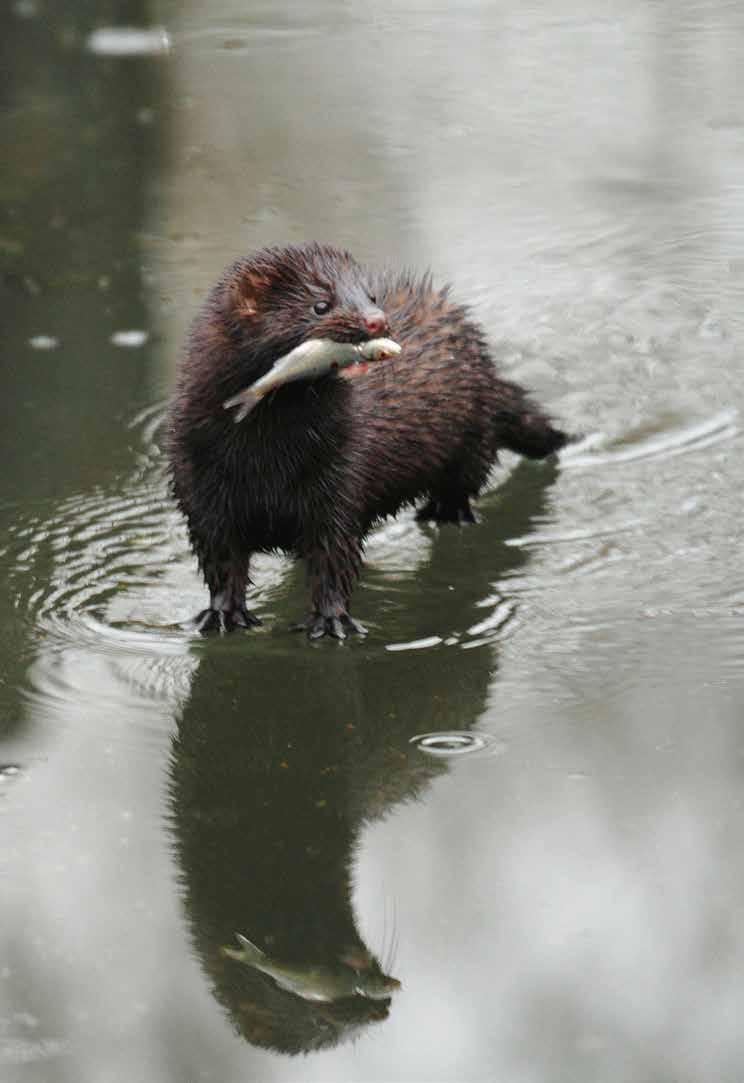
2 minute read
how austerity is affecting the wildlife crime officer role
The research found that the number of full-time wildlife crime officers has fluctuated since a 2013 survey. This revealed that an estimated third of police forces had dedicated wildlife crime officers in the UK . Overall policing numbers were cut by the coalition’s government’s austerity measures in 2010 which would have inevitably affected the prioritising of wildlife crime.
All NGO and academic research participants commented that the wildlife crime officer role was one that needed to be properly resourced and supported. There was general agreement that the role should be dedicated rather than one carried out alongside other duties. A key theme emerging from the research is the extent to which wildlife crime officers’ duties risked being voluntary or part time.
Advertisement
One expert commented:
“If you’ve got competing priorities, wildlife loses out and they just end up spending their time on your normal kind of routine stuff and the wildlife just doesn’t get taken care of.” 26
Grouping With Rural Crime
The remaining 12 forces who responded to our 2022 survey (75%) stated that they have dedicated wildlife crime officers. However, 11 of these forces went on to say that the dedicated wildlife crime officer role is grouped in with rural crime more generally. It has not been established how much time is spent dealing with wildlife crime versus the more traditional types of crime such as theft and burglary that affects rural communities.
There is inconsistency in how the wildlife crime officer role is constituted. Four police forces (25%) advised that they have wildlife crime officers who undertake this role on a voluntary part time basis alongside their full-time policing role. One police officer interviewed for this research explained that a consequence of this is wildlife crime potentially becoming a secondary issue against the provision of essential or priority policing services.
25% of police forces advised that they have wildlife crime officers who undertake the role on a voluntary part time basis alongside their full-time policing role
The research has revealed the following key themes regarding wildlife crime in the UK

Wildlife crime does not have the same priority as ‘mainstream’ crimes. And so, where there is competition for resources, wildlife crime is likely to lose out because it is still primarily seen as a lesser offence without human victims.
The priority given to wildlife crimes varies between regions and police forces. This is largely because it is not mandated as a policing priority by the Home Office/Ministry of Justice. It is also up to Chief Police Officers to decide how they allocate their resources and determine local priorities.
Wildlife crimes have a lesser status in legislation. This is because they are not notifiable and are generally summary only offences not attracting heavier sentences.
Consequently, there is a lack of clear data on the level of wildlife crimes.
Internationally, there are moves to have wildlife crime considered as serious crime, but the UK’s legislative framework does not fully place wildlife crime in the ‘serious’ bracket.
Gathering sufficient and reliable evidence to prosecute wildlife crime cases is a problem because of the remote nature of many wildlife crimes. Furthermore, the evidentiary requirements for prosecution are not always clearly understood.
Despite the valuable contribution of the NWCU to wildlife crime policing, it lacks permanent funding. This is a further indication that under UK policy, wildlife simply doesn’t count as much as it should.
There is an inconsistency of approach across police forces regarding wildlife crime officers. A few forces have dedicated officers; other forces may make responsibility for wildlife crime a voluntary addition to a police officer’s existing duties, grouping it with rural crime.
Wildlife policing is primarily reactive and wildlife crime is an under-resourced area heavily reliant on the dedication of individual enforcement officers and, in some cases, support from NGOs
The overall picture is one of wildlife crime as insufficiently resourced. This affects the way police forces provide for wildlife crime officers through to the provision of scientific and forensic support for the investigation of wildlife crimes.











